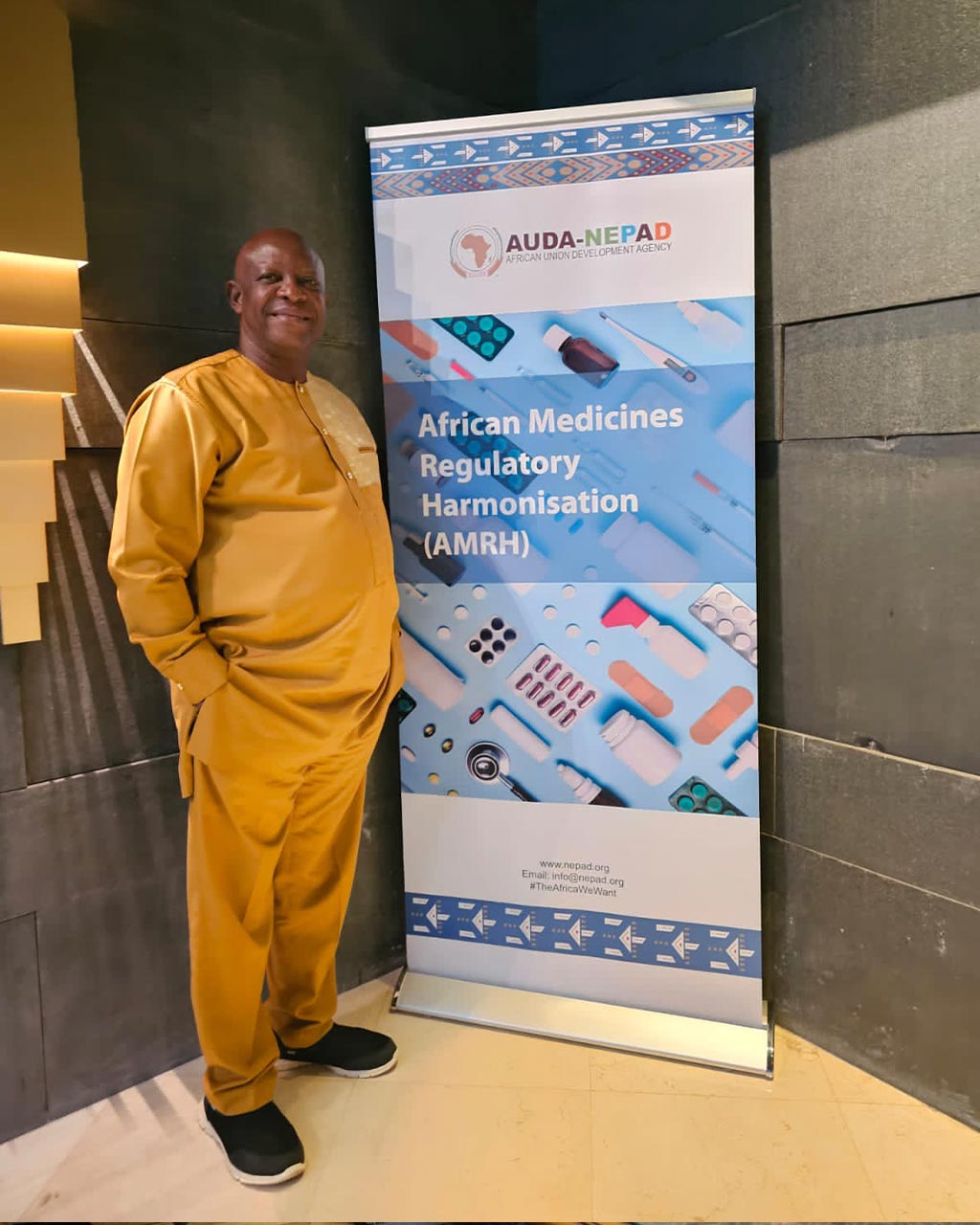Registrar, Pharmacy Board of Sierra Leone, Dr. Peter James Komeh actively participated today in the 6th Biennial Scientific Conference on Medical Products Regulation in Africa (SCoMRA) hosted by the African Union Development Agency (AUDA-NEPAD) and World Health Organization (WHO), from December 5th to 7th in Cairo, Egypt.
The scientific conference attracted hundreds of participants from African National Regulatory Authorities (NRAs), Regional Economic Communities (RECs), policymakers, academia, scientific community, private sector, civil society, and development partners in health and pharmaceutical sectors.
Dr. Peter James Komeh, Sierra Leone’s representative at the conference said, the conference provides a podium to share scientific advances and current best practices in regulatory science disciplines with the aim to strengthen the regulatory system, improve access to affordable essential medical products.
The participants have started deliberating on actions to sustain the momentum for regulatory systems strengthening and harmonization in Africa.
Dr. Komeh further voiced that the focus of the 6th SCoMRA is built on the outcomes of the first to the fifth Biennial Scientific Conference on Medical Products Regulation in Africa, that has been jointly organized by the African Union Development Agency (AUDA-NEPAD) and the World Health Organization (WHO).
The Sixth Biennial SCoMRA aims to achieve the following objectives specifically sharing scientific advances and current best practices in the regulatory science disciplines among regulators, industry, scientists, academia, and policymakers, sharing progress in regional and continental harmonization and the advancement of Africa’s regulatory ecosystems in the era of the African Medicines Agency (AMA) and identifying actions towards creating an enabling environment for local production of medical products and technologies through regulatory systems strengthening and harmonization.
Similarly, the SCoRMA is facilitating collaboration and networking among stakeholders, including regulators, policymakers, academia, the scientific community, the private sector, and civil society.
Finally, the conference has started identifying best practices and models of linking regulation to local production, pooled procurement, and the entire value chain.




